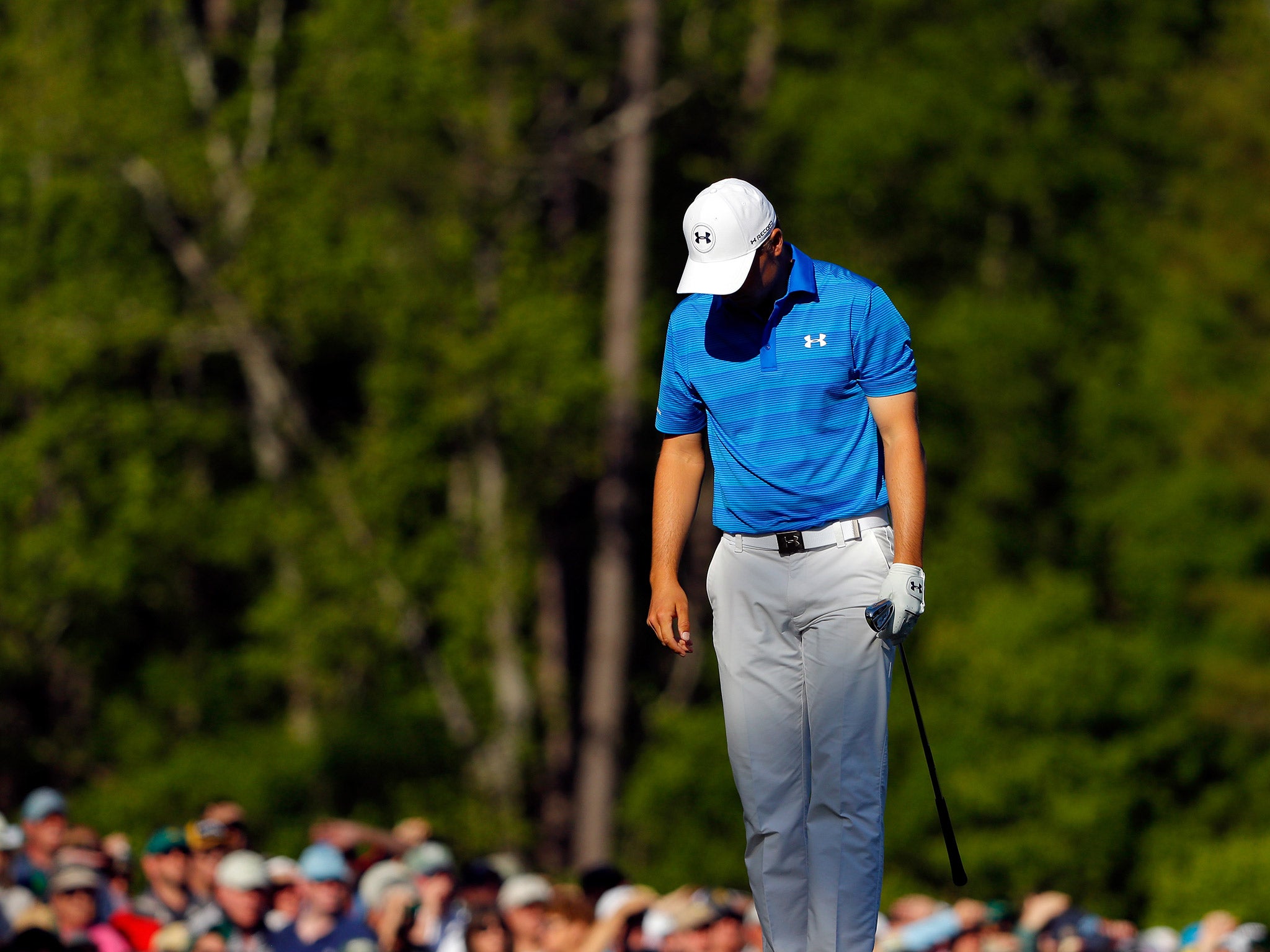Jordan Spieth cannot find words to sum up Masters meltdown
Texan struggles to comprehend how he imploded during final round at Augusta

The eyes were dead, his heart broken. Somehow Jordan Spieth was fulfilling the professional obligation to speak after his round. Hitherto in this setting that has involved the retelling of a glorious tale, divulging the details of victory.
American journalism has a fascination for the psychological, “what was going through your mind?” is a question oft heard in the post-round huddle. Spieth’s mind was in knots. He barely knew which way he was facing. His mouth moved to speak then stalled. The words would not come. The scale of his defeat was unutterable, beyond processing in this phase of the trauma.
And that is what it was, a collapse epic in scale played out before an audience of millions around the world. The brilliant young champion around whom the myth of invincibility had grown brought low by the kind of simple human frailty he was thought not to have.
As Spieth was staring blankly into the arc lights, a few metres away beneath the clubhouse balcony our own knight of the realm, Sir Nick Faldo, author of Greg Norman’s haunting distress here 20 years ago when he came from six back to beat the great Australian by five, was articulating the young American’s ordeal.
“He’ll be hurting, that’s for sure. He won’t be sleeping much,” observed Faldo. “It’s a tough loss. This will scar him. This will damage him for a while. We're all in shock with what happened to Jordan.
“In '96 you got the sense that Greg was struggling, but it was bit by bit. What happened to Jordan was so sudden, just bam. It was 10 minutes of golf. That's the harshness of it.”
The name Spieth, origin German, translates as speedy success, and could not have been more apt for a 22-year-old busily re-ordering the golfing hierarchy. That was until he reached the 12th hole at Augusta on championship Sunday, an achingly beautiful piece of golfing architecture in a bucolic setting that conceals a spiteful nature.
Speith turned for home with a five-shot advantage over his nearest challenger and eventual winner Danny Willett. Bogeys at 10 and 11 were nothing more than inconvenient blemishes on his card, affordable errors of little significance in themselves. And then he put his tee shot at 12 in Rae’s Creek, the ball spinning down the bank into the water. Two shots gone right there. That’s different.
Suddenly he looked what he was, a 22-year-old boy searching for the answers to questions beyond his experience. In boxing parlance he was gone at all levels, his head scrambled, his arms and legs working independently of his brain. His second shot was a wedge from 100 yards that went straight in the water.
Spieth was effectively paralysed by the scale of his loss. An unprecedented second, wire-to-wire, back-to-back Masters was in his grasp, to all intents and purposes in the bag. And then it was no more, just like that.
“At one point I told Mike [Greller, his caddie], I said, 'buddy, it seems like we're collapsing.' And I wanted to be brutally honest with the way I felt towards him, so that he could respond with what was necessary to get us to rebound. And we did. I rebounded. I hit a great drive, I hit a good 7 iron, got a tough break. I made two birdies coming in and almost made a couple more. But, boy, you wonder about not only just the tee shot on 12, but why can't you just control the second shot, you know, and make 5 at worse, and you're still tied for the lead. Big picture, this one will hurt. It will take a while.”
Spieth’s sportsmanship in defeat, his role in the ceremonial presentation of the green jacket, demonstrated his character. As did the birdies he fashioned at 13 and 15 to resurrect the idea of a comeback. A birdie at 16 from just five feet would have drawn him within one of Willett with two to play. It was a remarkable show of strength in the circumstances.
A bogey at 17 ended the dream. His final round still contained seven birdies. His record in the past five majors is still written in binary; 1:1:2:2:2. He remains a great, great player, the best putter in the game, but the myth of impregnability has gone.
Subscribe to Independent Premium to bookmark this article
Want to bookmark your favourite articles and stories to read or reference later? Start your Independent Premium subscription today.

Join our commenting forum
Join thought-provoking conversations, follow other Independent readers and see their replies